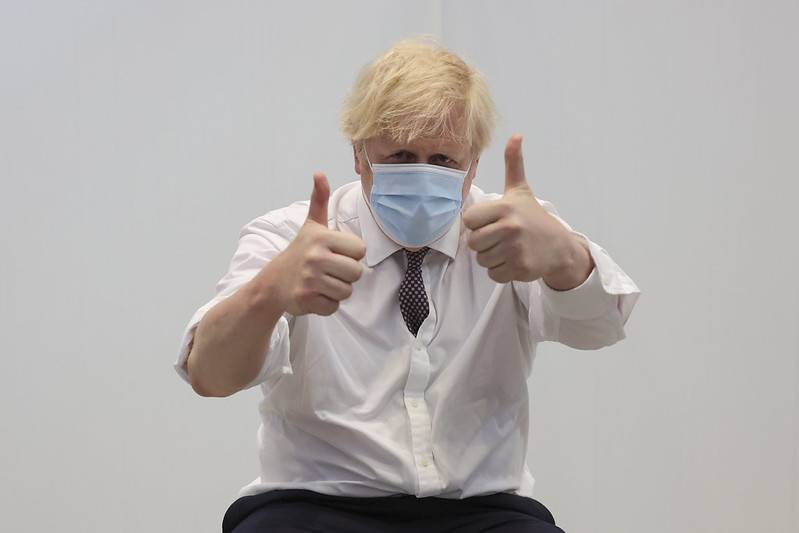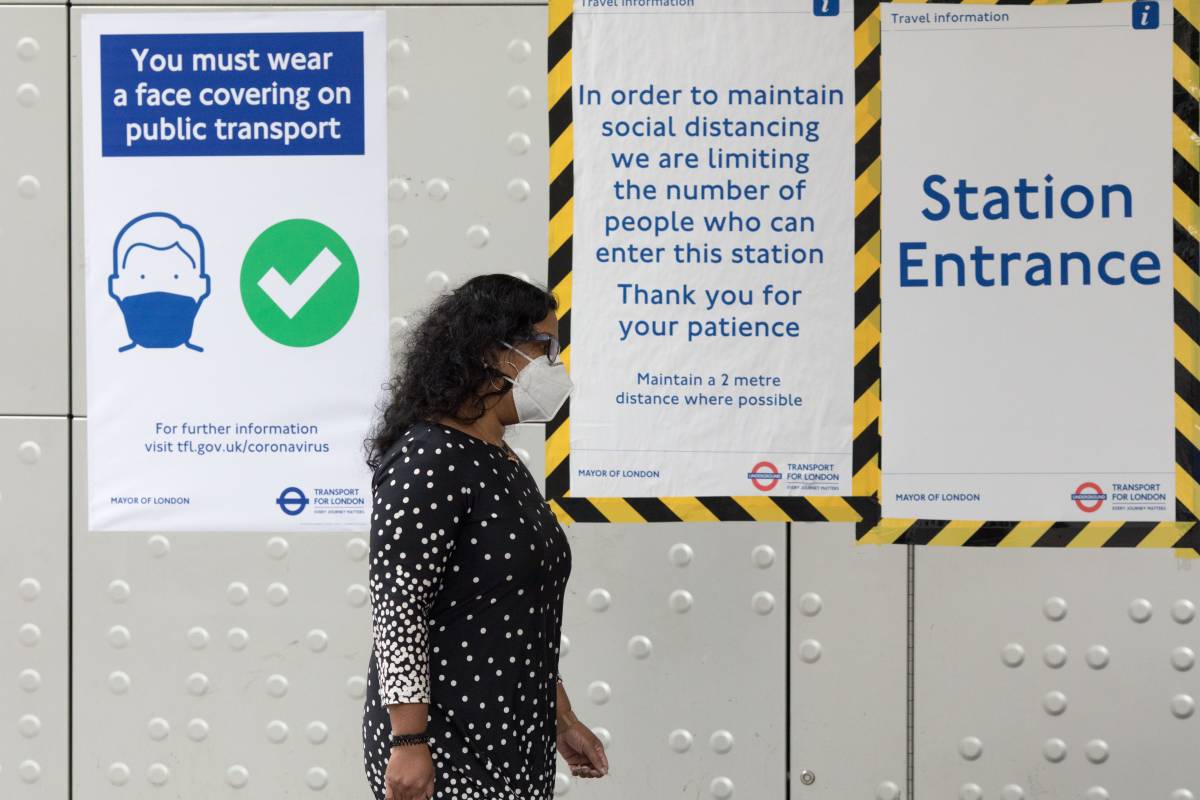Officials estimate that the Delta variant, which they believe is more transmissible than the Alpha strain first identified in the UK, accounts for more than 90 per cent of recent new cases, reports Asian Lite Newsdesk
United Kingdom has recorded 11,007 new COVID-19 cases in 24 hours, with the emergence of the Delta variant pushing the figure above 10,000 for the first time since late February.
NHK World reported that Britain has confirmed the highest number of new cases of coronavirus infection since late February due to the rapid spread of the Delta variant first detected in India.
The number of admissions to medical institutions has also been rising, with more than 1,000 people currently hospitalised. Officials estimate that the Delta variant, which they believe is more transmissible than the Alpha strain first identified in the UK, accounts for more than 90 per cent of recent new cases.
The Delta variant has been spreading rapidly in the country since last month. Analysts say many recent infections have been among younger people who have not been vaccinated.
Starting on Friday, officials plan to expand vaccination eligibility to cover all individuals aged 18 or above. Officials believe that two-dose inoculations are effective against the Delta variant. They are shortening the recommended interval between shots for citizens aged 40 or older from up to 12 weeks to eight weeks.
Earlier this week, Prime Minister Boris Johnson announced a delay in plans to lift most remaining anti-infection restrictions in England by about one month.
The House of Commons of on Wednesday approved the proposal to postpone the deadline for lifting quarantine restrictions in England until July 19.
In favour of extending social restrictions in England voted 461 members of parliament, against — 60.
The move was over concerns about the third wave of the pandemic and the spread of the COVID-19 variant first detected in India. The authorities planned to completely lift restrictions in England on June 21.
Scotland earlier also refused to lift restrictions, planned for June 7, and tentatively pushed the date to June 28.
According to Johnson, the authorities need more time to vaccinate as many people as possible, especially given the dangers of the Indian strain. The government has already accelerated the vaccination program: by July 19, London plans to vaccinate two-thirds of the population aged over 30, while those in the 18-24 age bracket began receiving their first shots.
Currently, the restrictions include the ban on indoor mass events, the closing of nightclubs, social distancing and mask-wearing. The government has recommended to continue working remotely, if possible. Shops, pubs and restaurants are open and can serve visitors indoors.
Accuracy of private Covid tests
From 1 September 2021 all COVID-19 molecular and antigen tests available to purchase will require validation prior to sale on the UK market under new draft legislation set out on Thursday, bringing them in line with NHS Test and Trace test standards.
The government already has rigorous safety measures in place for all PCR and LFD tests provided through NHS Test and Trace, and for all tests used for international travel.
The new legislation will help consumers who choose to use private tests by giving them clear, comparable information so they can confidently choose a test in a rapidly expanding market.

The proposed laws will mean all private tests must pass through a new rigorous and efficient validation process to guarantee they will give reliable results. This will ensure that all COVID-19 tests available on the UK market meet one uniform standard.
This validation process is in addition to the existing UKAS accreditation scheme launched in December 2020, which ensures that private test providers meet the uniform minimum standards to provide testing services.
UKAS accreditation has focused on the services of tests providers whereas validation will focus on ensuring there are minimum standards for the test products used as well.
Under the new scheme, all private testing suppliers will need to go through the validation process ahead of selling tests, bringing them into line with NHS Test & Trace standards.
Providers who fail to meet required minimum standards will incur penalties. Retailers, distributors and manufacturers who attempt to sell unvalidated tests could face punitive sanctions based on the current regulatory requirements for medical devices. (ANI/Sputnik)
ALSO READ-UK to probe Apple, Google’s ‘effective duopoly’
READ MORE-UK PM: Selfish Approach to COVID proved Self-Destructive

Leave a Reply